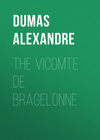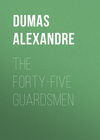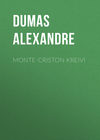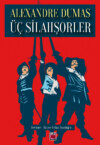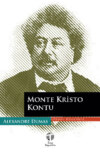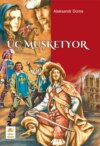Kitabı oku: «Louise de la Valliere», sayfa 10
Chapter XVII. The Encounter
The king signified with an imperious gesture, first to the musketeer, then to Saint-Aignan, “On your lives, not a word.” D’Artagnan withdrew, like a sentinel, to a corner of the room; Saint-Aignan, in his character of a favorite, leaned over the back of the king’s chair. Manicamp, with his right foot properly advanced, a smile upon his lips, and his white and well-formed hands gracefully disposed, advanced to make his reverence to the king, who returned the salutation by a bow. “Good evening, M. de Manicamp,” he said.
“Your majesty did me the honor to send for me,” said Manicamp.
“Yes, in order to learn from you all the details of the unfortunate accident which has befallen the Comte de Guiche.”
“Oh! sire, it is grievous indeed.”
“You were there?”
“Not precisely, sire.”
“But you arrived on the scene of the accident, a few minutes after it took place?”
“Sire, about half an hour afterwards.”
“And where did the accident happen?”
“I believe, sire, the place is called the Rond-point du Bois-Rochin.”
“Oh! the rendezvous of the hunt.”
“The very spot, sire.”
“Good; give me all the details you are acquainted with, respecting this unhappy affair, Monsieur de Manicamp.”
“Perhaps your majesty has already been informed of them, and I fear to fatigue you with useless repetition.”
“No, do not be afraid of that.”
Manicamp looked round him; he saw only D’Artagnan leaning with his back against the wainscot – D’Artagnan, calm, kind, and good-natured as usual – and Saint-Aignan whom he had accompanied, and who still leaned over the king’s armchair with an expression of countenance equally full of good feeling. He determined, therefore, to speak out. “Your majesty is perfectly aware,” he said, “that accidents are very frequent in hunting.”
“In hunting, do you say?”
“I mean, sire, when an animal is brought to bay.”
“Ah, ah!” said the king, “it was when the animal was brought to bay, then, that the accident happened?”
“Alas! sire, unhappily it was.”
The king paused for a moment before he said: “What animal was being hunted?”
“A wild boar, sire.”
“And what could possibly have possessed De Guiche to go to a wild boar-hunt by himself; that is but a clownish idea of sport, only fit for that class of people who, unlike the Marechal de Gramont, have no dogs and huntsmen, to hunt as gentlemen should do.”
Manicamp shrugged his shoulders. “Youth is very rash,” he said, sententiously.
“Well, go on,” said the king.
“At all events,” continued Manicamp, not venturing to be too precipitate and hasty, and letting his words fall very slowly one by one, “at all events, sire, poor De Guiche went hunting – all alone.”
“Quite alone? indeed? – What a sportsman! And is not M. de Guiche aware that the wild boar always stands at bay?”
“That is the very thing that really happened, sire.”
“He had some idea, then, of the beast being there?”
“Yes, sire, some peasants had seen it among their potatoes.”2
“And what kind of animal was it?”
“A short, thick beast.”
“You may as well tell me, monsieur, that De Guiche had some idea of committing suicide; for I have seen him hunt, and he is an active and vigorous hunter. Whenever he fires at an animal brought to bay and held in check by the dogs, he takes every possible precaution, and yet he fires with a carbine, and on this occasion he seems to have faced the boar with pistols only.”
Manicamp started.
“A costly pair of pistols, excellent weapons to fight a duel with a man and not a wild boar. What an absurdity!”
“There are some things, sire, which are difficult of explanation.”
“You are quite right, and the event which we are now discussing is certainly one of them. Go on.”
During the recital, Saint-Aignan, who probably would have made a sign to Manicamp to be careful what he was about, found that the king’s glance was constantly fixed upon himself, so that it was utterly impossible to communicate with Manicamp in any way. As for D’Artagnan, the statue of Silence at Athens was far more noisy and far more expressive than he. Manicamp, therefore, was obliged to continue in the same way he had begun, and so contrived to get more and more entangled in his explanation. “Sire,” he said, “this is probably how the affair happened. Guiche was waiting to receive the boar as it rushed towards him.”
“On foot or on horseback?” inquired the king.
“On horseback. He fired upon the brute and missed his aim, and then it dashed upon him.”
“And the horse was killed.”
“Ah! your majesty knows that, then.”
“I have been told that a horse has been found lying dead in the cross-roads of the Bois-Rochin, and I presume it was De Guiche’s horse.”
“Perfectly true, sire, it was his.”
“Well, so much for the horse, and now for De Guiche?”
“De Guiche, once down, was attacked and worried by the wild boar, and wounded in the hand and in the chest.”
“It is a horrible accident, but it must be admitted it was De Guiche’s own fault. How could he possibly have gone to hunt such an animal merely armed with pistols; he must have forgotten the fable of Adonis?”
Manicamp rubbed his ear in seeming perplexity. “Very true,” he said, “it was very imprudent.”
“Can you explain it, Monsieur Manicamp?”
“Sire, what is written is written!”
“Ah! you are a fatalist.”
Manicamp looked very uncomfortable and ill at ease.
“I am angry with you, Monsieur Manicamp,” continued the king.
“With me, sire?”
“Yes. How was it that you, who are De Guiche’s intimate friend, and who know that he is subject to such acts of folly, did not stop him in time?”
Manicamp no longer knew what to do; the tone in which the king spoke was anything but that of a credulous man. On the other hand, it did not indicate any particular severity, nor did he seem to care very much about the cross-examination. There was more of raillery in it than menace. “And you say, then,” continued the king, “that it was positively De Guiche’s horse that was found dead?”
“Quite positive, sire.”
“Did that astonish you?”
“No, sire; for your majesty will remember that, at the last hunt, M. de Saint-Maure had a horse killed under him, and in the same way.”
“Yes, but that one was ripped open.”
“Of course, sire.”
“Had Guiche’s horse been ripped open like M. de Saint-Maure’s horse, I should not have been astonished.”
Manicamp opened his eyes very wide.
“Am I mistaken,” resumed the king, “was it not in the frontal bone that De Guiche’s horse was struck? You must admit, Monsieur de Manicamp, that that is a very singular place for a wild boar to attack.”
“You are aware, sire, that the horse is a very intelligent animal, and he doubtless endeavoured to defend himself.”
“But a horse defends himself with his heels and not with his head.”
“In that case, the terrified horse may have slipped or fallen down,” said Manicamp, “and the boar, you understand sire, the boar – ”
“Oh! I understand that perfectly, as far as the horse is concerned; but how about his rider?”
“Well! that, too, is simple enough; the boar left the horse and attacked the rider; and, as I have already had the honor of informing your majesty, shattered De Guiche’s hand at the very moment he was about to discharge his second pistol at him, and then, with a gouge of his tusk, made that terrible hole in his chest.”
“Nothing is more likely; really, Monsieur de Manicamp, you are wrong in placing so little confidence in your own eloquence, and you can tell a story most admirably.”
“Your majesty is exceedingly kind,” said Manicamp, saluting him in the most embarrassed manner.
“From this day henceforth, I will prohibit any gentleman attached to my court going out to a similar encounter. Really, one might just as well permit duelling.”
Manicamp started, and moved as if he were about to withdraw. “Is your majesty satisfied?”
“Delighted; but do not withdraw yet, Monsieur de Manicamp,” said Louis, “I have something to say to you.”
“Well, well!” thought D’Artagnan, “there is another who is not up to the mark;” and he uttered a sigh which might signify, “Oh! the men of our stamp, where are they now?”
At this moment an usher lifted up the curtain before the door, and announced the king’s physician.
“Ah!” exclaimed Louis, “here comes Monsieur Valot, who has just been to see M. de Guiche. We shall now hear news of the man maltreated by the boar.”
Manicamp felt more uncomfortable than ever.
“In this way, at least,” added the king, “our conscience will be quite clear.” And he looked at D’Artagnan, who did not seem in the slightest degree discomposed.
Chapter XVIII. The Physician
M. Valot entered. The position of the different persons present was precisely the same: the king was seated, Saint-Aignan leaning over the back of his armchair, D’Artagnan with his back against the wall, and Manicamp still standing.
“Well, M. Valot,” said the king, “did you obey my directions?”
“With the greatest alacrity, sire.”
“You went to the doctor’s house in Fontainebleau?”
“Yes, sire.”
“And you found M. de Guiche there?”
“I did, sire.”
“What state was he in? – speak unreservedly.”
“In a very sad state indeed, sire.”
“The wild boar did not quite devour him, however?”
“Devour whom?”
“De Guiche.”
“What wild boar?”
“The boar that wounded him.”
“M. de Guiche wounded by a boar?”
“So it is said, at least.”
“By a poacher, rather, or by a jealous husband, or an ill-used lover, who, in order to be revenged, fired upon him.”
“What is it that you say, Monsieur Valot? Were not M. de Guiche’s wounds produced by defending himself against a wild boar?”
“M. de Guiche’s wounds are the result of a pistol-bullet that broke his ring-finger and the little finger of the right hand, and afterwards buried itself in the intercostal muscles of the chest.”
“A bullet! Are you sure Monsieur de Guiche was wounded by a bullet?” exclaimed the king, pretending to look much surprised.
“Indeed, I am, sire; so sure, in fact, that here it is.” And he presented to the king a half-flattened bullet, which the king looked at, but did not touch.
“Did he have that in his chest, poor fellow?” he asked.
“Not precisely. The ball did not penetrate, but was flattened, as you see, either upon the trigger of the pistol or upon the right side of the breast-bone.”
“Good heavens!” said the king, seriously, “you said nothing to me about this, Monsieur de Manicamp.”
“Sire – ”
“What does all this mean, then, this invention about hunting a wild boar at nightfall? Come, speak, monsieur.”
“Sire – ”
“It seems, then, that you are right,” said the king, turning round towards his captain of musketeers, “and that a duel actually took place.”
The king possessed, to a greater extent than any one else, the faculty enjoyed by the great in power or position, of compromising and dividing those beneath him. Manicamp darted a look full of reproaches at the musketeer. D’Artagnan understood the look at once, and not wishing to remain beneath the weight of such an accusation, advanced a step forward, and said: “Sire, your majesty commanded me to go and explore the place where the cross-roads meet in the Bois-Rochin, and to report to you, according to my own ideas, what had taken place there. I submitted my observations to you, but without denouncing any one. It was your majesty yourself who was the first to name the Comte de Guiche.”
“Well, monsieur, well,” said the king, haughtily; “you have done your duty, and I am satisfied with you. But you, Monsieur de Manicamp, have failed in yours, for you have told me a falsehood.”
“A falsehood, sire. The expression is a hard one.”
“Find a more accurate, then.”
“Sire, I will not attempt to do so. I have already been unfortunate enough to displease your majesty, and it will, in every respect, be far better for me to accept most humbly any reproaches you may think proper to address to me.”
“You are right, monsieur, whoever conceals the truth from me, risks my displeasure.”
“Sometimes, sire, one is ignorant of the truth.”
“No further falsehood, monsieur, or I double the punishment.”
Manicamp bowed and turned pale. D’Artagnan again made another step forward, determined to interfere, if the still increasing anger of the king attained certain limits.
“You see, monsieur,” continued the king, “that it is useless to deny the thing any longer. M. de Guiche has fought a duel.”
“I do not deny it, sire, and it would have been truly generous on your majesty’s part not to have forced me to tell a falsehood.”
“Forced? Who forced you?”
“Sire, M. de Guiche is my friend. Your majesty has forbidden duels under pain of death. A falsehood might save my friend’s life, and I told it.”
“Good!” murmured D’Artagnan, “an excellent fellow, upon my word.”
“Instead of telling a falsehood, monsieur, you should have prevented him from fighting,” said the king.
“Oh! sire, your majesty, who is the most accomplished gentleman in France, knows quite as well as any of us other gentlemen that we have never considered M. de Bouteville dishonored for having suffered death on the Place de Greve. That which does in truth dishonor a man is to avoid meeting his enemy – not to avoid meeting his executioner!”
“Well, monsieur, that may be so,” said Louis XIV.; “I am desirous of suggesting a means of your repairing all.”
“If it be a means of which a gentleman may avail himself, I shall most eagerly seize the opportunity.”
“The name of M. de Guiche’s adversary?”
“Oh, oh!” murmured D’Artagnan, “are we going to take Louis XIII. as a model?”
“Sire!” said Manicamp, with an accent of reproach.
“You will not name him, then?” said the king.
“Sire, I do not know him.”
“Bravo!” murmured D’Artagnan.
“Monsieur de Manicamp, hand your sword to the captain.”
Manicamp bowed very gracefully, unbuckled his sword, smiling as he did so, and handed it for the musketeer to take. But Saint-Aignan advanced hurriedly between him and D’Artagnan. “Sire,” he said, “will your majesty permit me to say a word?”
“Do so,” said the king, delighted, perhaps, at the bottom of his heart, for some one to step between him and the wrath he felt he had carried him too far.
“Manicamp, you are a brave man, and the king will appreciate your conduct; but to wish to serve your friends too well, is to destroy them. Manicamp, you know the name the king asks you for?”
“It is perfectly true – I do know it.”
“You will give it up then?”
“If I felt I ought to have mentioned it, I should have already done so.”
“Then I will tell it, for I am not so extremely sensitive on such points of honor as you are.”
“You are at liberty to do so, but it seems to me, however – ”
“Oh! a truce to magnanimity; I will not permit you to go to the Bastile in that way. Do you speak; or I will.”
Manicamp was keen-witted enough, and perfectly understood that he had done quite sufficient to produce a good opinion of his conduct; it was now only a question of persevering in such a manner as to regain the good graces of the king. “Speak, monsieur,” he said to Saint-Aignan; “I have on my own behalf done all that my conscience told me to do; and it must have been very importunate,” he added, turning towards the king, “since its mandates led me to disobey your majesty’s commands; but your majesty will forgive me, I hope, when you learn that I was anxious to preserve the honor of a lady.”
“Of a lady?” said the king, with some uneasiness.
“Yes, sire.”
“A lady was the cause of this duel?”
Manicamp bowed.
“If the position of the lady in question warrants it,” he said, “I shall not complain of your having acted with so much circumspection; on the contrary, indeed.”
“Sire, everything which concerns your majesty’s household, or the household of your majesty’s brother, is of importance in my eyes.”
“In my brother’s household,” repeated Louis XIV., with a slight hesitation. “The cause of the duel was a lady belonging to my brother’s household, do you say?”
“Or to Madame’s.”
“Ah! to Madame’s?”
“Yes, sire.”
“Well – and this lady?”
“Is one of the maids of honor of her royal highness Madame la Duchesse d’Orleans.”
“For whom M. de Guiche fought – do you say?”
“Yes, sire, and, this time, I tell no falsehood.”
Louis seemed restless and anxious. “Gentlemen,” he said, turning towards the spectators of this scene, “will you have the goodness to retire for a moment. I wish to be alone with M. de Manicamp; I know he has some important communication to make for his own justification, and which he will not venture before witnesses… Put up your sword, M. de Manicamp.”
Manicamp returned his sword to his belt.
“The fellow decidedly has his wits about him,” murmured the musketeer, taking Saint-Aignan by the arm, and withdrawing with him.
“He will get out of it,” said the latter in D’Artagnan’s ear.
“And with honor, too, comte.”
Manicamp cast a glance of recognition at Saint-Aignan and the captain, which luckily passed unnoticed by the king.
“Come, come,” said D’Artagnan, as he left the room, “I had an indifferent opinion of the new generation. Well, I was mistaken after all. There is some good in them, I perceive.”
Valot preceded the favorite and the captain, leaving the king and Manicamp alone in the cabinet.
Chapter XIX. Wherein D’Artagnan Perceives that It Was He Who Was Mistaken, and Manicamp Who Was Right
The king, determined to be satisfied that no one was listening, went himself to the door, and then returned precipitately and placed himself opposite Manicamp.
“And now we are alone, Monsieur de Manicamp, explain yourself.”
“With the greatest frankness, sire,” replied the young man.
“And in the first place, pray understand,” added the king, “that there is nothing to which I personally attach a greater importance than the honor of any lady.”
“That is the very reason, sire, why I endeavored to study your delicacy of sentiment and feeling.”
“Yes, I understand it all now. You say that it was one of the maids of honor of my sister-in-law who was the subject of dispute, and that the person in question, De Guiche’s adversary, the man, in point of fact, whom you will not name – ”
“But whom M. de Saint-Aignan will name, monsieur.”
“Yes, you say, however, that this man insulted some one belonging to the household of Madame.”
“Yes, sire. Mademoiselle de la Valliere.”
“Ah!” said the king, as if he had expected the name, and yet as if its announcement had caused him a sudden pang; “ah! it was Mademoiselle de la Valliere who was insulted.”
“I do not say precisely that she was insulted, sire.”
“But at all events – ”
“I merely say that she was spoken of in terms far enough from respectful.”
“A man dares to speak in disrespectful terms of Mademoiselle de la Valliere, and yet you refuse to tell me the name of the insulter?”
“Sire, I thought it was quite understood that your majesty had abandoned the idea of making me denounce him.”
“Perfectly true, monsieur,” returned the king, controlling his anger; “besides, I shall know in good time the name of this man whom I shall feel it my duty to punish.”
Manicamp perceived that they had returned to the question again. As for the king, he saw he had allowed himself to be hurried away a little too far, and therefore continued: – “And I will punish him – not because there is any question of Mademoiselle de la Valliere, although I esteem her very highly – but because a lady was the object of the quarrel. And I intend that ladies shall be respected at my court, and that quarrels shall be put a stop to altogether.”
Manicamp bowed.
“And now, Monsieur de Manicamp,” continued the king, “what was said about Mademoiselle de la Valliere?”
“Cannot your majesty guess?”
“I?”
“Your majesty can imagine the character of the jest in which young men permit themselves to indulge.”
“They very probably said that she was in love with some one?” the king ventured to remark.
“Probably so.”
“But Mademoiselle de la Valliere has a perfect right to love any one she pleases,” said the king.
“That is the very point De Guiche maintained.”
“And on account of which he fought, do you mean?”
“Yes, sire, the sole and only cause.”
The king colored. “And you do not know anything more, then?”
“In what respect, sire?”
“In the very interesting respect which you are now referring to.”
“What does your majesty wish to know?”
“Why, the name of the man with whom La Valliere is in love, and whom De Guiche’s adversary disputed her right to love.”
“Sire, I know nothing – I have heard nothing – and have learnt nothing, even accidentally; but De Guiche is a noble-hearted fellow, and if, momentarily, he substituted himself in the place or stead of La Valliere’s protector, it was because that protector was himself of too exalted a position to undertake her defense.”
These words were more than transparent; they made the king blush, but this time with pleasure. He struck Manicamp gently on the shoulder. “Well, well, Monsieur de Manicamp, you are not only a ready, witty fellow, but a brave gentleman besides, and your friend De Guiche is a paladin quite after my own heart; you will express that to him from me.”
“Your majesty forgives me, then?”
“Completely.”
“And I am free?”
The king smiled and held out his hand to Manicamp, which he took and kissed respectfully. “And then,” added the king, “you relate stories so charmingly.”
“I, sire!”
“You told me in the most admirable manner the particulars of the accident which happened to Guiche. I can see the wild boar rushing out of the wood – I can see the horse fall down fighting with his head, and the boar rush from the horse to the rider. You do not simply relate a story well: you positively paint its incidents.”
“Sire, I think your majesty condescends to laugh at my expense,” said Manicamp.
“On the contrary,” said Louis, seriously, “I have so little intention of laughing, Monsieur de Manicamp, that I wish you to relate this adventure to every one.”
“The adventure of the hunt?”
“Yes; in the same manner you told it to me, without changing a single word —you understand?”
“Perfectly, sire.”
“And you will relate it, then?”
“Without losing a minute.”
“Very well! and now summon M. d’Artagnan; I hope you are no longer afraid of him.”
“Oh, sire, from the very moment I am sure of your majesty’s kind disposition, I no longer fear anything!”
“Call him, then,” said the king.
Manicamp opened the door, and said, “Gentlemen, the king wishes you to return.”
D’Artagnan, Saint-Aignan, and Valot entered.
“Gentlemen,” said the king, “I summoned you for the purposes of saying that Monsieur de Manicamp’s explanation has entirely satisfied me.”
D’Artagnan glanced at Valot and Saint-Aignan, as much as to say, “Well! did I not tell you so?”
The king led Manicamp to the door, and then in a low tone of voice said: “See that M. de Guiche takes good care of himself, and particularly that he recovers as soon as possible; I am very desirous of thanking him in the name of every lady, but let him take special care that he does not begin again.”
“Were he to die a hundred times, sire, he would begin again if your majesty’s honor were in any way called in question.”
This remark was direct enough. But we have already said that the incense of flattery was very pleasing to the king, and, provided he received it, he was not very particular as to its quality.
“Very well, very well,” he said, as he dismissed Manicamp, “I will see De Guiche myself, and make him listen to reason.” And as Manicamp left the apartment, the king turned round towards the three spectators of this scene, and said, “Tell me, Monsieur d’Artagnan, how does it happen that your sight is so imperfect? – you, whose eyes are generally so very good.”
“My sight bad, sire?”
“Certainly.”
“It must be the case since your majesty says so; but in what respect, may I ask?”
“Why, with regard to what occurred in the Bois-Rochin.”
“Ah! ah!”
“Certainly. You pretended to have seen the tracks of two horses, to have detected the footprints of two men; and have described the particulars of an engagement, which you assert took place. Nothing of the sort occurred; pure illusion on your part.”
“Ah! ah!” said D’Artagnan.
“Exactly the same thing with the galloping to and fro of the horses, and the other indications of a struggle. It was the struggle of De Guiche against the wild boar, and absolutely nothing else; only the struggle was a long and a terrible one, it seems.”
“Ah! ah!” continued D’Artagnan.
“And when I think that I almost believed it for a moment – but, then, you told it with such confidence.”
“I admit, sire, that I must have been very short-sighted,” said D’Artagnan, with a readiness of humor which delighted the king.
“You do admit it, then?”
“Admit it, sire, most assuredly I do.”
“So now that you see the thing – ”
“In quite a different light from that in which I saw it half an hour ago.”
“And to what, then, do you attribute this difference in your opinion?”
“Oh! a very simple thing, sire; half an hour ago I returned from Bois-Rochin, where I had nothing to light me but a stupid stable lantern – ”
“While now?”
“While now I have all the wax-lights of your cabinet, and more than that, your majesty’s own eyes, which illuminate everything, like the blazing sun at noonday.”
The king began to laugh; and Saint-Aignan broke out into convulsions of merriment.
“It is precisely like M. Valot,” said D’Artagnan, resuming the conversation where the king had left off; “he has been imagining all along, that not only was M. de Guiche wounded by a bullet, but still more, that he extracted it, even, from his chest.”
“Upon my word,” said Valot, “I assure you – ”
“Now, did you not believe that?” continued D’Artagnan.
“Yes,” said Valot; “not only did I believe it, but, at this very moment, I would swear it.”
“Well, my dear doctor, you have dreamt it.”
“I have dreamt it!”
“M. de Guiche’s wound – a mere dream; the bullet, a dream. So, take my advice, and prate no more about it.”
“Well said,” returned the king, “M. d’Artagnan’s advice is sound. Do not speak of your dream to any one, Monsieur Valot, and, upon the word of a gentleman, you will have no occasion to repent it. Good evening, gentlemen; a very sad affair, indeed, is a wild boar-hunt!”
“A very serious thing, indeed,” repeated D’Artagnan, in a loud voice, “is a wild boar-hunt!” and he repeated it in every room through which he passed; and left the chateau, taking Valot with him.
“And now we are alone,” said the king to Saint-Aignan, “what is the name of De Guiche’s adversary?”
Saint-Aignan looked at the king.
“Oh! do not hesitate,” said the king; “you know that I am bound beforehand to forgive.”
“De Wardes,” said Saint-Aignan.
“Very good,” said Louis XIV.; and then, retiring to his own room, added to himself, “To forgive is not to forget.”



